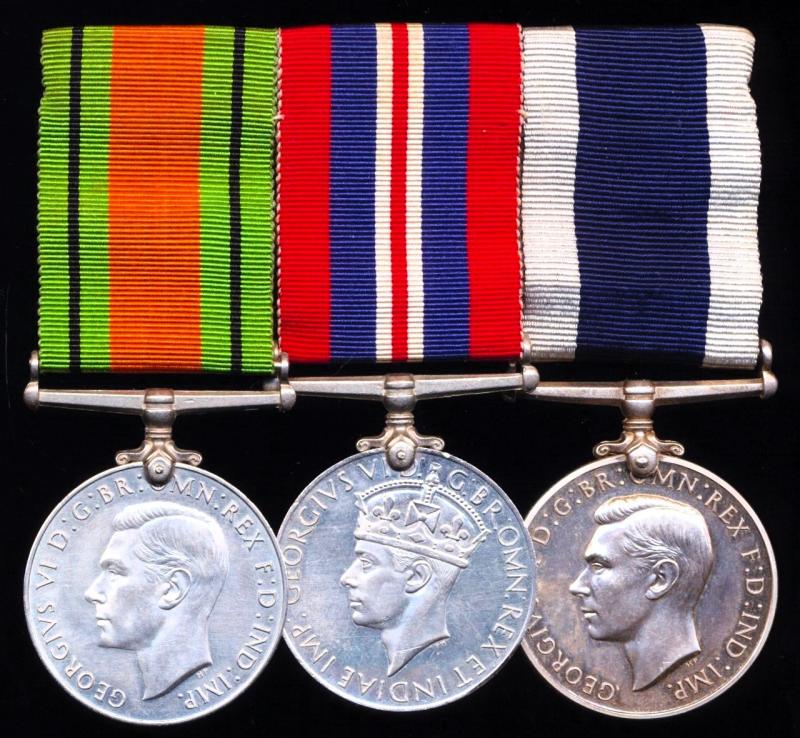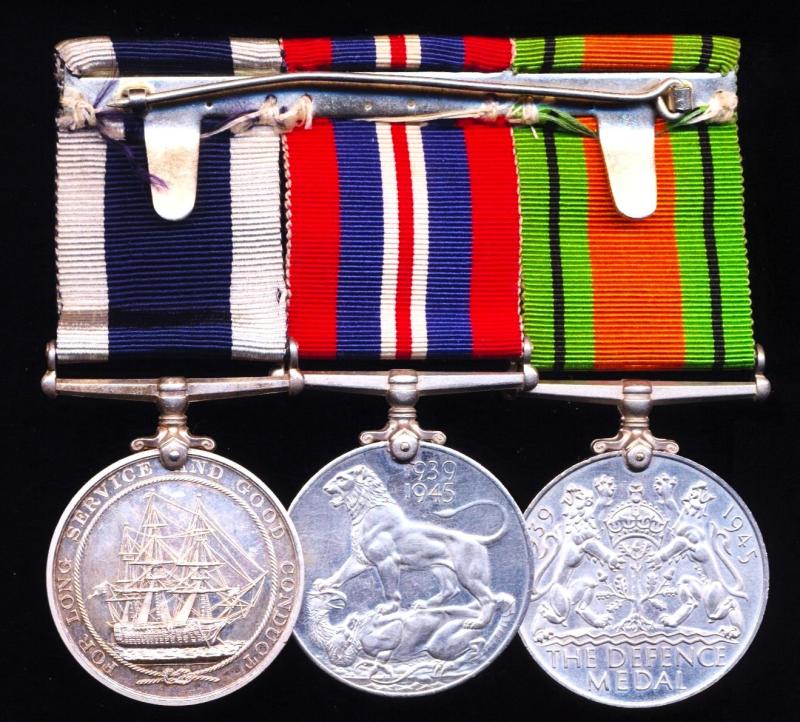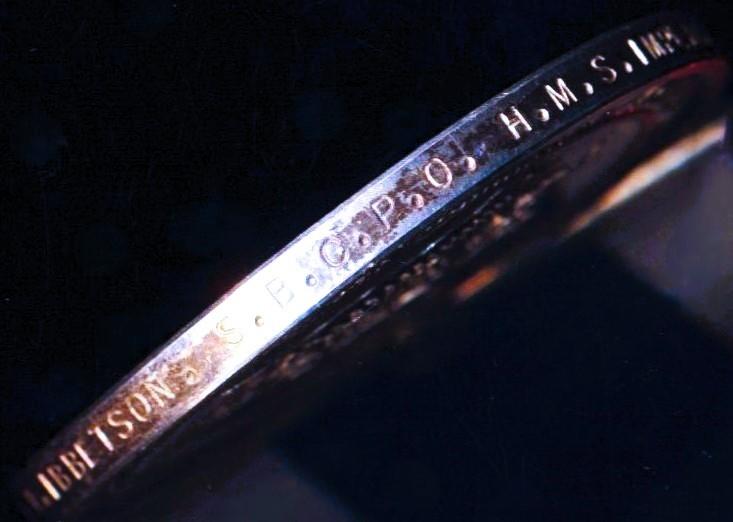A Sick Berth Chief Petty Officer's Second World War & Post War 'Aircraft Carrier' long service medal group of 3: Sick Berth Chief Petty Officer Reginald Ibbetson, Royal Navy late H.M.S. Implacable
- The Defence Medal
- War Medal
- Naval LS&GC. GVI 1st issue (MX.50116 R. Ibbetson. S.B.C.P.O. H.M.S. Implacable.)
Medals and clasp verification: The Naval LS&GC Medal confirmed as entitled per the respective referenced Admiralty Medal Roll. Second World War medal rolls are not yet in the public domain, but the basic qualification for all campaign medals can be derived from entries in the recipients 'Service Sheet':
- Defence Medal: For 3 years home service, or 12 months overseas non-operational service, or 6 months overseas in a designated 'threatened' area
- War Medal: Awarded for 28 days uniformed service 1939-45 - confirmed entitled per the Naval LS&GC awarded in 1948
- Naval LS&GC Medal. GVI 1st issue: ADM 171/153 the medal shown issued in 1948
H.M.S. Implacable: was the name ship of her class of two aircraft carriers built for the Royal Navy during World War II. Upon completion in 1944, Implacable was initially assigned to the Home Fleet and attacked targets in Norway for the rest of the year. She was subsequently assigned to the British Pacific Fleet (BPF) where she attacked the Japanese naval base at Truk and targets in the Japanese Home Islands in 1945. The ship was used to repatriate liberated Allied prisoners of war (PoWs) and soldiers after the Japanese surrender, for the rest of the year. Implacable returned home in 1946 and became the Home Fleet's deck-landing training carrier, a role that lasted until 1950. She briefly served as flagship of the Home Fleet in 1950. During this time she participated in many exercises and made a number of port visits in Western Europe. She was placed in reserve in 1950 and converted into a training ship in 1952, and served as flagship of the Home Fleet Training Squadron. The ship was considered for a major modernisation in 1951–1952, but this was rejected as too expensive and time-consuming. Implacable was decommissioned in 1954 and sold for scrap the following year.
Reginald Ibbetson son of Alfred Ibbetson (a Coal Miner) and Elsie Ibbetson (nee Kyme) was a native of the parish of Wath-upon-Dearne, near Rotherham, West Yorkshire, England, where he was born on, 20 February 1915, and where he lived in his youth at, 16 Moor Road, Wath. Reginald joined the Royal Navy circa 1933, when he was 18 years of age, and was trained to be a Sick Berth Attendant. During the Second World War, Reginald - a Petty Officer by 1942 - served in South Africa, where he was based at the largest naval base in the country, located at Simon's Town, Cape Province. While serving n South Africa, Petty Officer Ibbetson married Mary 'Florence' Slater, at Simson's Town on, 14 May 1942 (the marriage was reported in the Yorkshire newspaper 'South Yorkshire Times and Express' issue of, 18 July 1942). Reginald, latterly residing at, 41 Rochester Road, Taunton, Somerset, England, appears to have taken his discharge from the Royal Navy sometime prior to 1956, as UK Passenger Manifests for voyages from the United Kingdom, recorded that Reginald together with wife and a son, sailed from Southampton bound for Cape Town, South Africa, aboard the Union Castle Line's passenger vessel S.S. 'Athlone Castle' that sailed on, 26 July 1956. The passenger manifest describes his profession as 'Medical', and that the family was intending to make South Africa their future permanent residence. For whatever reason, the move to South Africa did not become permanent, as Reginald, residing at, 27 Holway Road, Taunton, Somerset, England, is recorded to have died at Taunton on, 13 August 1972
The medals mounted in the swing-style, and as-worn by the recipient. The silk ribands suspended from a white-metal mounting bar that retains its long hinged pin and clasp fittings
Condition: About EF
Code: 24321
145.00 GBP





